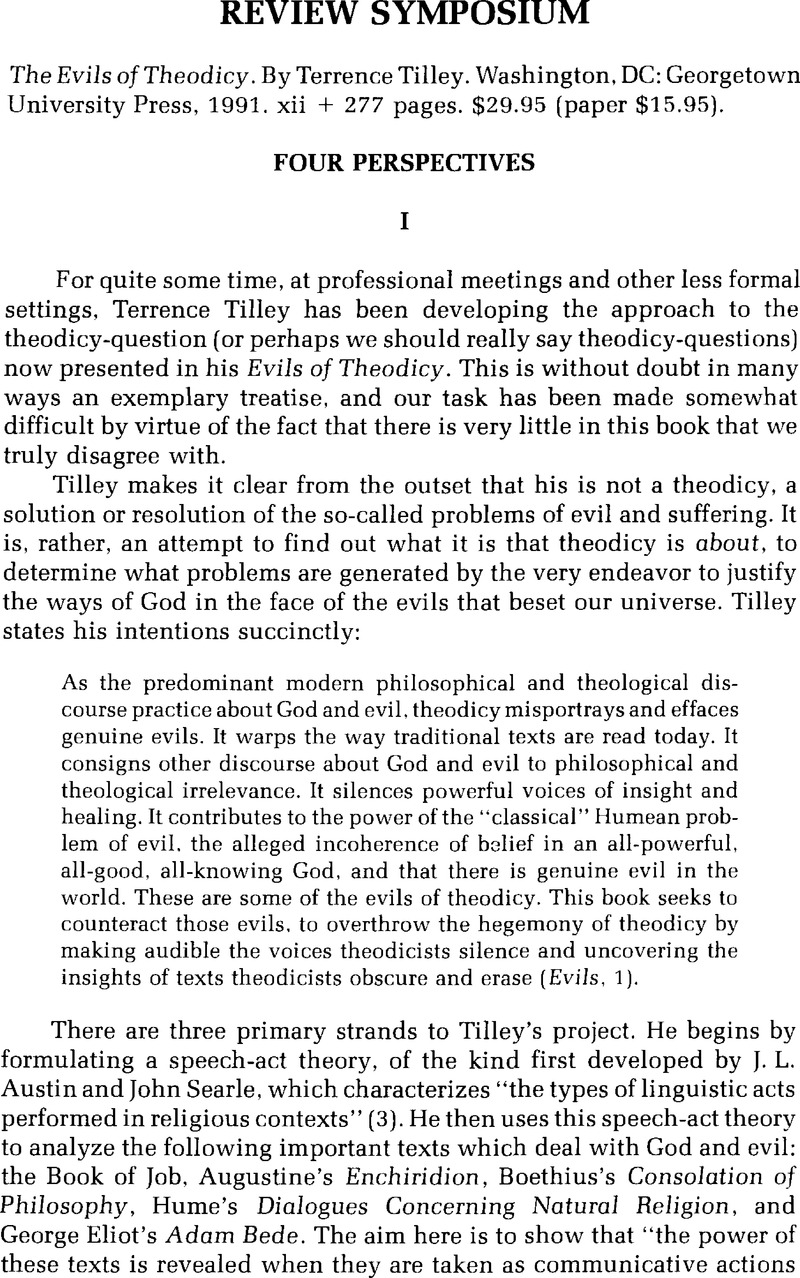No CrossRef data available.
Article contents
The Evils of Theodicy. Author's Response
Published online by Cambridge University Press: 09 September 2014
Abstract

- Type
- Review Symposium
- Information
- Copyright
- Copyright © The College Theology Society 1991
References
1 Laffey is uncomfortable with “speech-act theory of literary criticism.” So am I, especially in the philosophically confused and uncritical forms as exemplified by some of the essays in Speech Act Theory and Biblical Criticism, Semeia 41, ed. White, Hugh C. (Decatur, GA: Scholars Press, 1988).Google Scholar
2 I take this phrase from Sharon Welch, who brilliantly explores some womanist literature to uncover the strength of and in oppressed communities as a way of developing a viable theological alternative to an ethic of control in A Feminist Ethic of Risk (Minneapolis, MN: Fortress, 1990).Google Scholar
3 As a married male, is it too much in my own interest to note that in our tradition, even married males (unless they are conservative converting clergy) are also excluded from “ministry,” and thus males are socialized into one form of exclusionary oppression?
4 This might be construed as making central and rethinking the distinction between operating and co-operating grace (see Thomas Aquinas, Summa Theologiae Ia-IIae,q. 111, art. 2).




